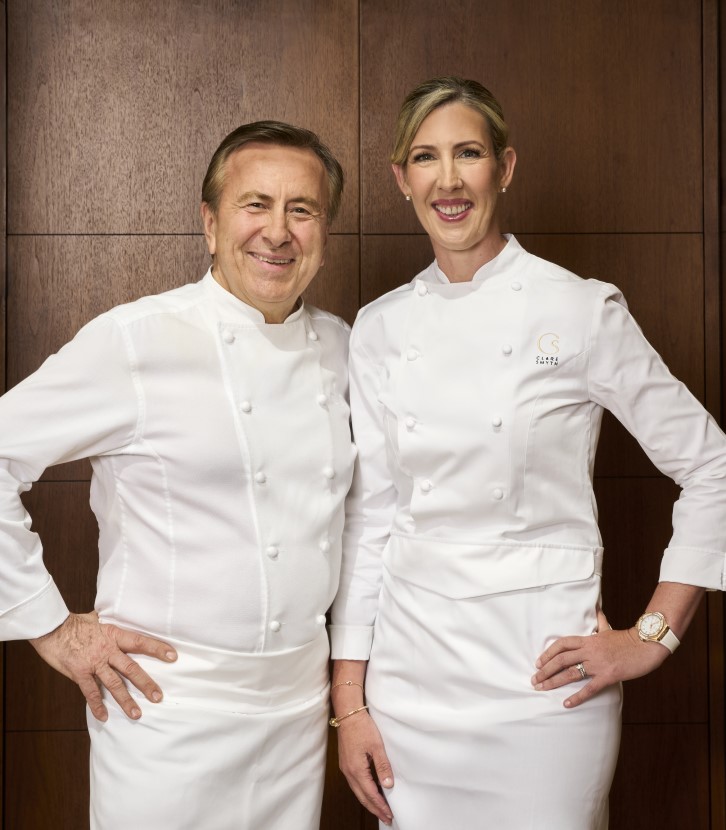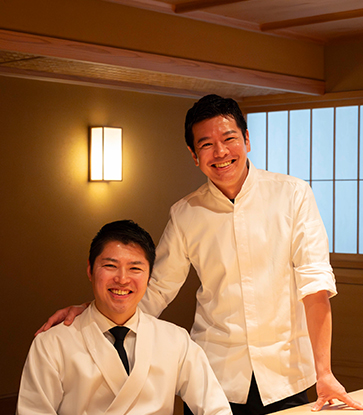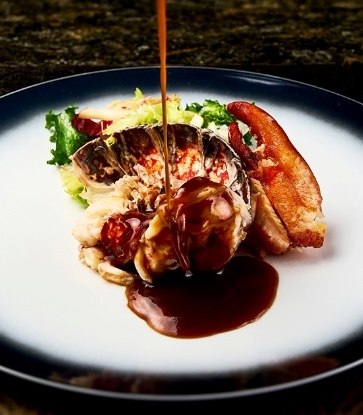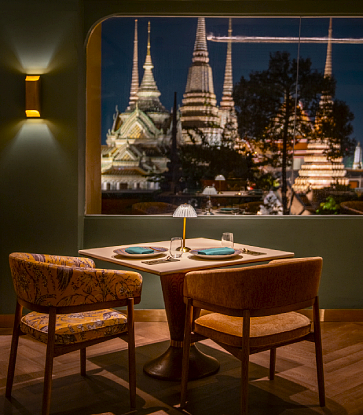In September 2023, the two MICHELIN star and MICHELIN Green Star restaurant, Florilege, relocated to Azabudai Hills. It occupies the entire second floor of a building in the Garden Plaza area, next to Nishikubo Hachiman Shrine.
The restaurant is designed as a detached house; after passing through the iron door reminiscent of a house gate, diners find a long banquet-style table. This 'table d'hôte' is a communal dining concept that Kawate values.

An Emphasis on Local Japanese Produce
Owner and chef Hiroyasu Kawate, born in 1978, has shifted his focus toward vegetable-centered, plant-based cuisine since the relocation. He shares that, as he ages, he prefers vegetables over fatty meats and finds it more interesting to cook vegetable-centric dishes.
He noticed during overseas collaboration events that Japanese meat and fish, once exclusive to Japan, are now available globally. In contrast, rare vegetables like "Kyo-yasai" (traditional Kyoto vegetables) are not available overseas. Therefore, he decided to serve these unique vegetables to diners visiting Japan.
Traditionally, farm-to-table restaurants in rural areas with vast land have an advantage in vegetable-centric cuisine, but Kawate, born and raised in Tokyo, says, “I want to create dishes that can be best accomplished in Tokyo.

Cooking That Doesn’t Rely on the Ingredients
So, what is Tokyo-style plant-based cuisine? “To make vegetables delicious, it’s better not to express their characteristics from the start,” Kawate says. “Chefs in the countryside create dishes that embrace the nature and characteristics of ingredients. Recently, someone who tasted my dishes told me, ‘You’ve become a chef who doesn’t embrace the ingredients,’ and it made a lot of sense to me.”
To him, the flavors created by cooking is more important than the taste of the ingredients. “When making miso, for example, the type of soybeans used doesn’t affect the taste of the final product—how it’s cooked is more important,” he says. By using common vegetables familiar to everyone, he tries to create dishes that challenge people's preconceptions and aims to create dishes where diners can sense the chef’s creativity. That said, he doesn’t use cheap ingredients. “Rather than expressing the vegetables as they are, I prefer to create something memorable for diners through my filter, even if it looks simple.”

Creativity from Within
Kawate cooks with freedom, which sees him intuitively develop new ideas and create new dishes. For example, using the traditional French method of “en croute” with puff pastry, Kawate puts daikon (white radish) instead of meat and serves it with “Irizake” (a seasoning made with sake and pickled plum) sauce. The dishes created are based on seasonal themes such as “fermented,” “spicy,” or “dried food”.
“People have traditionally added fried thin tofu to ‘hijiki’ seaweed stew because hijiki pairs well with fatty foods,” Kawate says. “I added beurre noisette.”
Kawate feels the demographic of his diners has broadened, attracting not only food lovers but also tourists from overseas.
As the owner of several properties, including the modern Asian restaurant Logy in Taiwan and the skewer-themed Den Kushi Flori in collaboration with Tokyo’s Japanese restaurant “Den,” Kawate is determined to showcase his unique style at Florilege.
He aims to reveal the unexpected side of vegetables often considered “common” and transform them into new dishes that leave a lasting impression on diners.

Hero Image: ⒸFlorilège

















